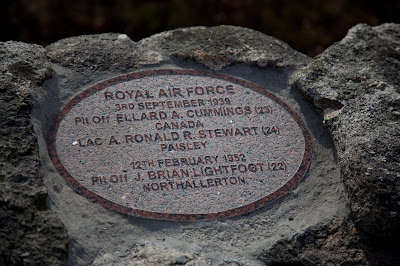Lady Chatterley's Lover - by Duncan Harley
The media today reported on the export ban placed on the
original annotated High-Court copy of Lady Chatterley’s Lover. Seemingly, if anyone in the land has a deep-enough wallet, then the actual copy used on
the bench during the landmark 1960 obscenity trial can be had for a measly
£56,250 or thereabouts.
For those not in the know, the novel was penned just prior to D.H. Lawrence’s death in 1930 – well I suppose that would be a given really. Eventually published by Penguin some 30 years later the lusty tome became an underground sensation as both inquisitive schoolboys and curious adults swapped secret dog-eared copies in the hope of finding out what the lady did with the gamekeeper in the bushes behind the big house. A Crown Prosecution followed under the Obscene Publications Act and sales rocketed when the case was decided by a jury who took just a few hours to decide that the content did not deprave or corrupt anyone in the land.
For those not in the know, the novel was penned just prior to D.H. Lawrence’s death in 1930 – well I suppose that would be a given really. Eventually published by Penguin some 30 years later the lusty tome became an underground sensation as both inquisitive schoolboys and curious adults swapped secret dog-eared copies in the hope of finding out what the lady did with the gamekeeper in the bushes behind the big house. A Crown Prosecution followed under the Obscene Publications Act and sales rocketed when the case was decided by a jury who took just a few hours to decide that the content did not deprave or corrupt anyone in the land.
A permissive 1960’s society had seemingly triumphed and a
staidly quasi-Victorian establishment was sent to the bad-boys corner along
with a sound rebuke and maybe a spanking or two.
Anyway, I can’t help but notice a similarity between the original Penguin edition of Lawrence’s Chatterley and that my
own Little History of Aberdeenshire. For starters there are some risque tales.
In the case of Chatterley, the finely penned prose includes sublime
descriptors such as ‘the slow subsiding thrust’ and ‘the sudden quiver of him
at the springing of his seed’.
In contrast my tome recalls a different Lawrence’s sojourn over
at Collieston and reflects that: ‘Infamously, T.E. Lawrence, of Arabia fame,
spent a summer in a harbour-side cottage over at Collieston. Seemingly, well after his Arabian adventures and his later RAF sojourn, he had
become friendly with a fellow soldier, Jock Bruce from Aberdeen, whom he had
met during a brief period of service with the Royal Tank Regiment. Jock was
from local farming stock and the adventurous pair apparently shared a healthy
interest in sadomasochistic floggings.’
Not a meeting of literary minds perhaps. But, and in the big
scheme, both books have at least one major similarity – a distinctively ivory toned cover.
In sharp contrast to Penguin’s post court case overnight
sell-out of some 200,000 copies, my sales number in the low thousands. But that
might change once word gets out that, alongside the lurid tale of T.E. Lawrence’s exciting sojourn in the north-east, The Little History of Aberdeenshire contains hitherto
unknown details about a sitting US Presidents attempt to destabilise the
Scottish Parliament’s Renewables Policy plus a lurid tale or two about Lord
Byron's affair with his admiring sister.
Duncan Harley is the author of The Little History ofAberdeenshire – available from both Amazon and local bookshops. Signed copies
from Inverurie Whisky Shop @ £12











Comments
Post a Comment